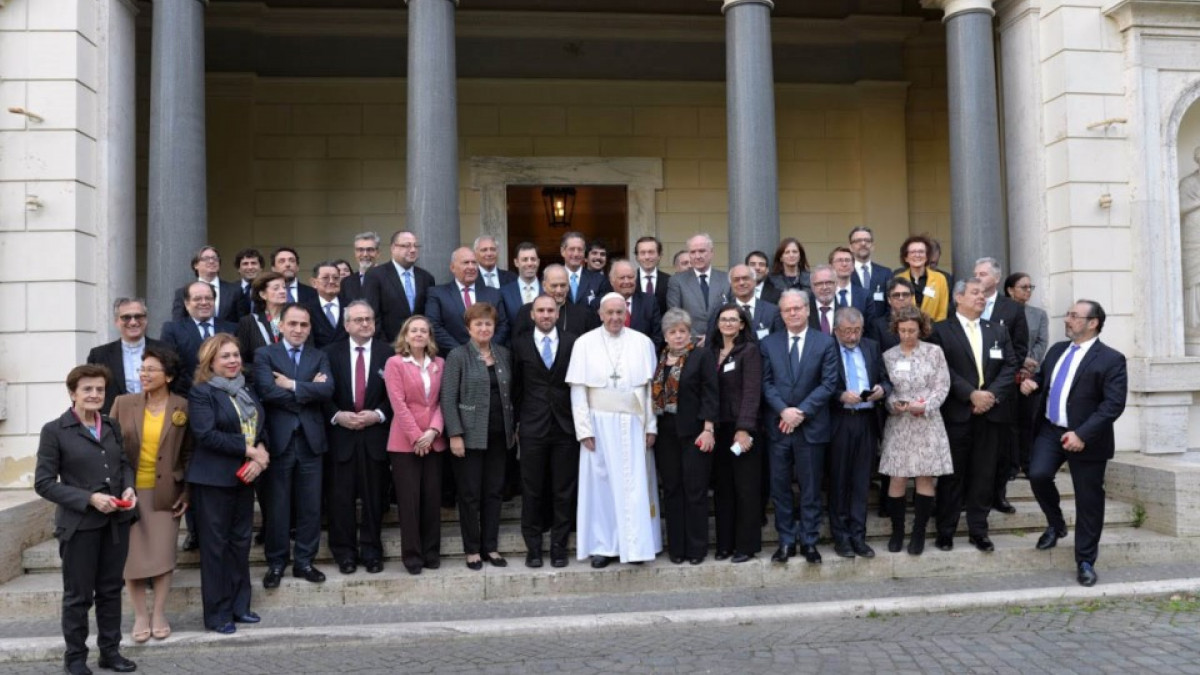The role of development banks in building a better world
Juan E. Notaro
FONPLATA Executive President
A few days ago, I took part in the Forum “New Forms of Solidarity: Towards fraternal Inclusion, Integration and Innovation”, organized by the Pontifical Academy of Social Sciences of the Vatican. Pope Francis, academy members, international organizations and financial institutions of the whole world were present.
In banks and financial institutions, our business is to lend money and recover it with interest. And we would do our countries a disservice, if we did not demand the financial health and strength of our institutions.
But the questions raised by the event – and on which I based my intervention – were more than appropriate: what is the role of development banks in funding social infrastructure and sustainable projects? Can development banks sow the seed of solidarity between peoples?
In my early years at the Inter-American Development Bank (IDB), the then president, Enrique Iglesias, repeated a message that had a strong influence in the rest of my professional career: "Never forget that in the IDB we are more than a bank". That "more than a bank" is the people. To keep it always in mind, in FONPLATA we have incorporated it into our slogan: "Bringing development closer to the people".
The challenges are daunting. In Latin America, inequality remains alarming. Of the 50 countries with the highest social mobility in the world, only three are from Latin America, and Uruguay is the best ranked in the 35th position, though.
Poverty is persistent and hereditary. The economic and social achievements of the commodities boom are increasingly difficult to maintain; while social, political and economic instability in many of our countries draws a complex picture that, in cases such as Venezuela, has forced migratory movements that have generated additional problems in the region.
To all this we must add the greatest global threat of our time: climate change and its consequences. A few days ago, the United Nations High Commissioner for Refugees, Filippo Grandi, warned that we must prepare for the displacement of millions of people due to the increasingly frequent and intense weather events.
I do not list these problems with the intention of alarming or disappointing, but rather to propose answers to the questions posed at the beginning.
First, I believe that development banks should use their interaction with governments, civil society and the business world to provide viable resources and alternatives that help overcome inequalities within and between regions.
Second, to give priority to alliances, coordination of efforts, knowledge and financial resources among our institutions to achieve delivery capacity and responsiveness consistent with the increasingly critical magnitude and deadlines of the challenges we face.
The frequency and devastating effects of financial, migratory, climate or pandemic crises, such as the current Covid19 (coronavirus disease), are harder on the most vulnerable people, regardless of where they live.
Third, to be efficient, more frugal and less bureaucratic is also a sign of solidarity towards our countries, which are the source of our capital. Especially when there is a lack of public funding, it would be a very positive sign to strengthen partnerships with the private sector.
Fourth, we should remember that the recipients of our efforts are people and, in particular, those who fall behind or face restrictions that prevent them from making progress, having better opportunities and achieving a better quality of life. In the words of Pope Francis, "it is time to get the poor out of their despair".
Now, it is also time to make a significant effort to overcome another major imbalance in the developing world: the technology gap.
There is already a 100% digital bank in Brazil. With more than one cell phone per inhabitant, the development of digital financial services is a big step in favor of financial inclusion in a country where about 50 million people do not have a bank account.
In development banks we have the obligation to open our doors and our funding to initiatives that take advantage of technology to favor the inclusion of the poorest.
Finally, environmental challenges mean that we must adopt a comprehensive approach that incorporates new technologies and stronger structures. But we should also change the way we think and act, our consumption and production patterns, and have an attitude of greater solidarity in the face of the imminent population movements that I mentioned earlier.
These are the tasks and commitments that development banks must assume together with civil society organizations, political parties, governments and other international organizations.
If we do so, we will promote inclusion, equality, and overcome some historical inequities with which we have been living for too long. We will fulfill our responsibility to fund infrastructure with social focus and sustainable projects.
In addition, and in response to the second question we proposed at the beginning, we will sow the seed of solidarity between peoples.
Text originally published in the monthly column of Juan E. Notaro in the Huffington Post

